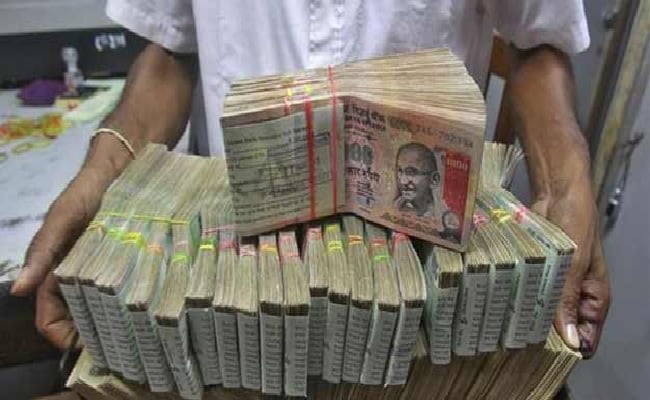
One man’s meat is another’s poison. The Union Budget 2019 has made a clear demarcation between the traditional automobile industry- the one that uses internal combustion engine and uses fossil fuel, and the nascent electrical vehicle fraternity.
It offers a virtual bonanza for electrical vehicles, something that even the most optimist among the lot would not have expected. From income tax deductions on interest on EV loans, investment incentives for setting up charging stations and battery manufacturing to scrapping import duties on key components.
At the same time there is nothing on offer for the other, even though the domestic industry has been reeling under an unprecedented slowdown- sales have declined in 11 of the last 12 months, and was expecting some sops. Instead, it has been penalised via a surcharge and infrastructure cess on petrol and diesel that increases the operating cost of a conventional vehicle. It could not have come at a worse time.
“The auto industry is currently going through a very difficult time and the industry was expecting some form of a stimulus package in the Budget in line with what had been done by the government during the previous two similar slowdowns. It is disappointing that the FM has not recognised the distress in the auto sector and not come out with any kind of support or stimulus,” said Rajan Wadhera, President, Society of Indian Automobile Manufacturers (SIAM).
The slowdown has impacted the entire value chain of the industry- from the brick and mortar ancillary suppliers to the dealer community. A record 245 car dealerships across the country have shut down over the last 18 months as a fall out of the slowdown.
“Our budget expectations were high, looking at the current state of the industry as we were expecting specific measures in the budget to revive growth in the auto industry and to that extent we are disappointed,” said Ashish Harsharaj Kale, President, Federation of Automobile Dealers Association (FADA). “Moreover, with an addition of cess on Petrol and Diesel leading to price hike by Rs 2 might impact auto sales, especially in the price sensitive two-wheeler segment.”
The domestic automobile industry under SIAM forms one of the strongest lobbies in the country and on numerous occasions in the past the heft of the combined $90 billion industry has altered the course of policy-making in India. That it no longer has as much hold over this government is aptly clear now and the Finance Minister Nirmala Sitharaman admitted as much in her post budget interaction.
“We have been absolutely clear that we want to encourage industries that are environment friendly and discourage those that are harmful to the ecology,” she said. “Besides, global situation being what it is and India’s public funding requirement being what it is, there is always this demand that funds should be mobilised without hurting the individual tax payers. Since, petrol and diesel are not in GST and we did not want to levy additional tax on individual taxpayers (given public transport system has improved in many places), we raised the cess on petrol and diesel. But we also want to promote bio-fuels.”
With the unexpected bonanza under its belt, the domestic EV industry that has for long played poor cousin to its bigger more dominant sibling, is literally over the moon.
“This budget has been very promising for our industry. The proposal to lower GST rates on electric vehicle from 12 per cent to 5 per cent is a positive sign and we hope to see it implemented at the earliest,” said Rahul Sharma, Founder, Revolt Intellicorp Pvt. Ltd. “It is an opportunity for consumers to start adopting electric vehicles. An additional income tax deduction of Rs 1.5 lakh on the interest paid on the loans would make the purchase more affordable. This is the start of a revolution and we believe three years from now things will change rapidly and India will be ahead of the curve in its adoption rate.”
The disillusionment in the other camp is palpable. Electrification is a major disruption in the sector and while industry has been asking for sops, incentives and time to make the transition, policymakers feel companies are dragging their feet and not being proactive enough.
“The industry had expected that a voluntary scrappage policy would be announced, which did not happen. There was also no announcement of extension of the 200 per cent weighted deduction for R&D expenses,” rued Wadhera.
Worse, import duties on a host of components for traditional vehicles have also been increased that will make some of them, especially luxury cars and mobikes, more expensive.
“The decision to increase the custom duty on automotive parts was not expected and it is not going to help create demand in the industry, which is already facing continued strong macro-economic headwinds, resulting in subdued consumer interest,” said Martin Schwenk, Managing Director & CEO, Mercedes-Benz India. “The increase in custom duty coupled with increased input costs due to fuel price hike, could lead to an increase in the price of our model range. Though the budget has given a boost to green mobility, we wished for the inclusion of Plug-In-Hybrids for duty exemption as well, as that would have further given a push to the green mobility efforts.”
The traditional industry has fallen out of favor with the government and the green electric lobby being the new favourite. Change is the only constant.
[“source=businesstoday”]



